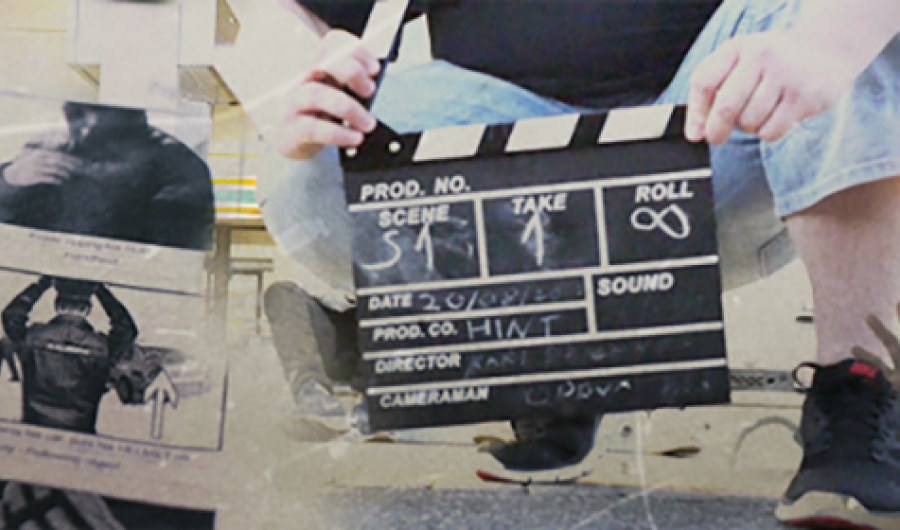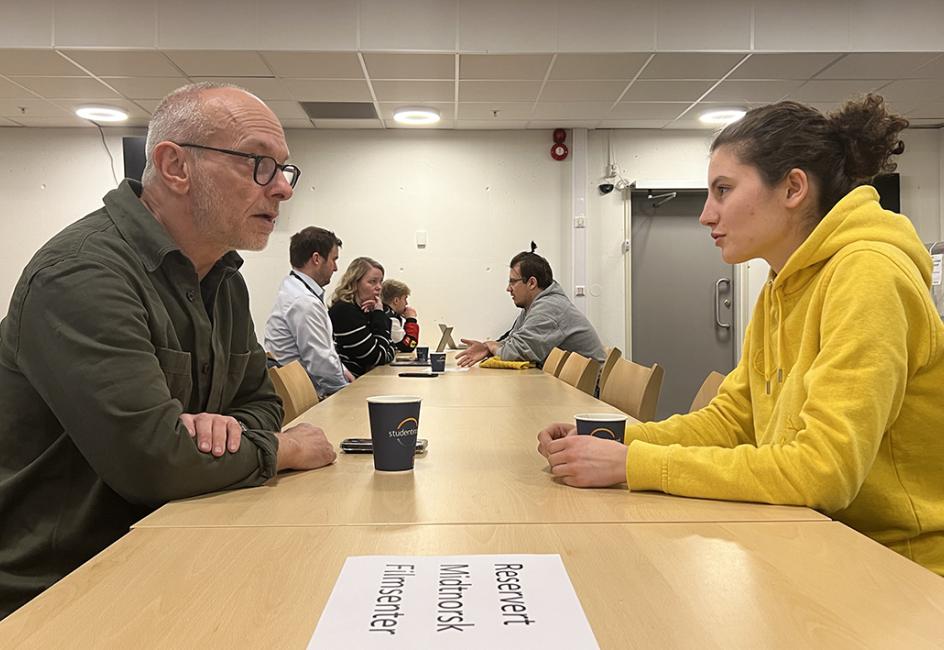
Film and TV Production
Learning every technique and aspect of Film and TV production, you will be able to create industry-level content.
Programme description
Career opportunities
- Higher education entrance qualification. English language proficiency.
View general admission and documentation requirements - Artistic portfolio - Information about portfolio: Nord University – Applicants to Media Technology Studies
It is becoming increasingly common for students to take a semester abroad as a part of their bachelor's degree. Please contact your programme coordinator or your student advisor upon starting this programme should you want further information about exchange opportunities.
The following institutions are included in Erasmus+ exchange agreements linked to this study programme:
- Plymouth College of Art, England
- NTHV Breda University of Applied Sciences, the Netherlands
- Saxion University of Applied Sciences, the Netherlands
Students can primarily go on exchange the fourth or fifth semester of the programme.
Upon graduating the candidate will have attained the following learning outcomes:
Knowledge:
The candidate has knowledge about main subjects within:
- Storytelling/screenwriting and directing
- Production techniques for film and TV
- The role of the producer
- Media innovation
- The candidate can also utilise theoretical concepts within these main areas to make appropriate decisions in the production phase.
- The candidate is familiar with relevant R&D areas and artistic research within film and TV production, i.e. innovative production techniques, changes in consumer behaviour and new distribution channels.
- The candidate can find relevant information and theory to stay updated within the disciplinary field. The candidate has acquired production experience, knowledge of the business and a historic perspective within the discipline.
Skills:
- The candidate can utilise results and experiences from literature and artistic research/productions to make appropriate choices within discipline/business.
- The candidate can reflect on his/her work, document this and know how to adjust execution in light of constructive feedback.
- The candidate has, by being exposed to multiple subjects, been introduced to a wide variety of material that functions as a foundation to better comprehend issues.
- The candidate is proficient in the techniques and tools to produce various film and TV productions within several genres, as well as how to distribute and publish the finished products. Herein includes professional camera and lighting equipment, editing hard- and software, production plans and documentation.
General competence:
- The candidate has been exposed to multiple topic questions from research projects and industry professionals that provide a deeper understanding of the craft. Herein is included ethical norms and rules, intellectual property and other relevant regulations and best practice principles.
- The candidate has attained the ability to work in teams and improved on relational skills. He/she can give and receive constructive criticism in the service of achieving the best possible outcome. The candidate can also focus on independence and innovative problem solving, as well as awareness of the demands of the business.
- The candidate has attained a wide foundation of various presentation techniques to present subject-specific topic questions, what theories are relevant and individual experiences from different productions.
- The candidates can express themselves well verbally, communicate with partners and have constructive discussions.
- The candidate has been given an academic and practical foundation, thereby affording the candidate a skillset that allows him/her to find new solutions in a business in constant technological development.
- The candidate has insight into the international development in the field and actively participates in the international academic activities and environment.
No tuition fees for EU/EEA/EFTA students. Costs for semester registration and course literature apply.
Travel costs will incur related to productions at various locations. Several productions take place at night or during weekends. We recommend students to also invest in some equipment themselves: Wacom tablet (Intuos 4 or more recent), memory stick, external hard drive, headset etc.
From the academic year 2023/2024, non-EU/EEA/EFTA applicants are required to pay tuition fees at Nord university, for each academic year.
Tuition fees will be charged to international students with citizenship from outside the EU/EEA/EFTA, as of the academic year 2023/2024.
Students who have started their study programme before the autumn semester 2023 are not required to pay tuition fees.
Please note that some applicants can apply for an exemption from paying tuition fees.
Nord university does not offer scholarships or grants.




